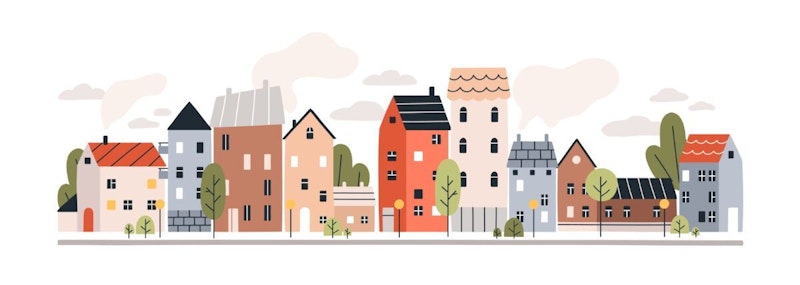Exam Support
Detailed Delve: Paper 3 AQA GCSE Geography examiner report

30th August 2024
In this blog I am going to summarise the key points across different questions types on Paper 3.
Don't forget that this year AQA have included exemplar answers with commentary highlighting good and weak answers which is really useful for your own or departmental CPD.
Issue Evaluation: MCQs
What was done well?
- Most students were able to identify the correct responses using the resource booklet
Areas for improvement
- Some students still lack confidence with their map skills – they need to practise reading OS maps
Issue Evaluation: Point marked questions
What was done well?
- Backing up answers with data evidence to get the 2nd development mark
- Identifying relationships between data sets
- Giving two things when asked (e.g. give two ways…, give two reasons…)
Areas for improvement
- Some students didn’t understand what was meant by relationship between data
- Some gave very vague answers, e.g. ‘pollution’ (what type?)
- Some points were copied straight from the resource booklet
Issue Evaluation: 4 marker
What was done well?
- Most students could identify physical geography features, e.g. rivers and contours – some of these were specific (named), some development of points, such as variations in slope using contours as evidence
- Some students made reference to both relief and drainage
Areas for improvement
- Some students just listed features from the map without development
- Lots of answers made no mention of physical geography at all
Issue Evaluation: 6 markers (x2)
Question about use of brownfield sites to regenerate urban areas – tested AO3…
Weaker answers – basic understanding that developing brownfield sites improves urban areas; basic reference to jobs and money, or attracting business; talks about infrastructure already being there with no development.
Better answers – reference to the different ways they urban areas could be improved; reference to multiplier effect; consideration of social, economic and environmental improvements; reference to local authority generating income to spend on improving services.
Question about the housing crisis being more than building more houses – tested AO3…
Weaker answers – basic statements about not enough housing, or housing being too expensive; a lot of copying directly from resource booklet.
Better answers – consideration of complex decision-making process; discussion of house prices and affordability, conditions of homes, lack of facilities to support a growing population; reference to greenfield vs brownfield.
Issue Evaluation: 9 marker (+ 3 SPaG)
Question about whether the proposed development was sustainable…
Weaker answers – talked about vague aspects of sustainability; some talked about pros and cons of the development with no mention of sustainability; lots of copying directly from the resource booklet; very limited conclusions – often without consideration of extent.
Better answers – were able to talk about social, economic and environmental sustainability; used evidence from the resource booklet but elaborated it in detail; some talked about how sustainability would change over time, e.g. once the station was built; started with to what extent they agreed.

Fieldwork: MCQs
What was done well?
- Most students were able to identify the correct responses
Areas for improvement
- MCQ about presentation methods was poorly answered – some students didn’t know the types of graphs
Fieldwork: Point marked questions
What was done well?
- Most students calculated answers with accuracy
- Some students were able to develop their 2nd mark with an example or data
Areas for improvement
- Read questions carefully – e.g. some students missed that they needed a % for question 4.1
- Nearly half of students got the pie chart question wrong (over ¼ didn’t complete it at all)
- A lot of students didn’t understand dispersion graphs
- Some students needed to back up their points with data
- A lot of students don’t know how to adapt data collection methods – often vague suggestions were made
- Confusion between data collection and data presentation (on the 3 marker for familiar fieldwork)
- Students need to develop points about risk assessments
- Students were not very good at justifying data presentation methods – many didn’t link it to what the data was actually showing
Fieldwork (unfamiliar): 4 marker
What was done well?
- Most students recognised that the hypothesis was correct and that velocity did increase
- Lots of students backed up their response with supporting data
Areas for improvement
- Some students misunderstood the data – thinking that the times were the speeds and therefore discounted the hypothesis
- Not many dealt with the ‘to what extent’ aspect of the question
Fieldwork (familiar): 6 marker
Weaker answers – confused data collection and presentation, or wrote about the wrong enquiry (human instead of physical); some just described the data collection and didn’t evaluate it, often saying they were effective but providing no evidence.
Better answers – discusses usefulness and limitations of two or more data collection methods; some considered how they could be improved.
Fieldwork (familiar): 9 marker (+ 3 SPaG)
Weaker answers – didn’t include the fieldwork title so it was hard to assess; only reflected on one part of the question – results or conclusions; some talked about the theory behind the enquiry and not their actual results, e.g. describing how an urban area has been improved and listing improvements, but making no reference to any of the fieldwork that they did.
Better answers – talked about their results in detail, often using data to back up points; linked results to conclusions and made reference to the hypothesis; made reference to the theory behind the enquiry and how their results support that; included well substantiated conclusions.

You might also like

Know your stuff: Tips for Effective Revision
4th February 2015
Exam Preparation for GCSE Geography
22nd April 2015
Last minute tips to avoid panic revision
22nd May 2016

Lessons to be learned from the summer's GCSE exams - Paper 1 analysis
7th September 2023

Detailed Delve: Paper 1 AQA GCSE Geography examiner report
28th August 2024

Detailed Delve: Paper 2 AQA GCSE Geography examiner report
29th August 2024